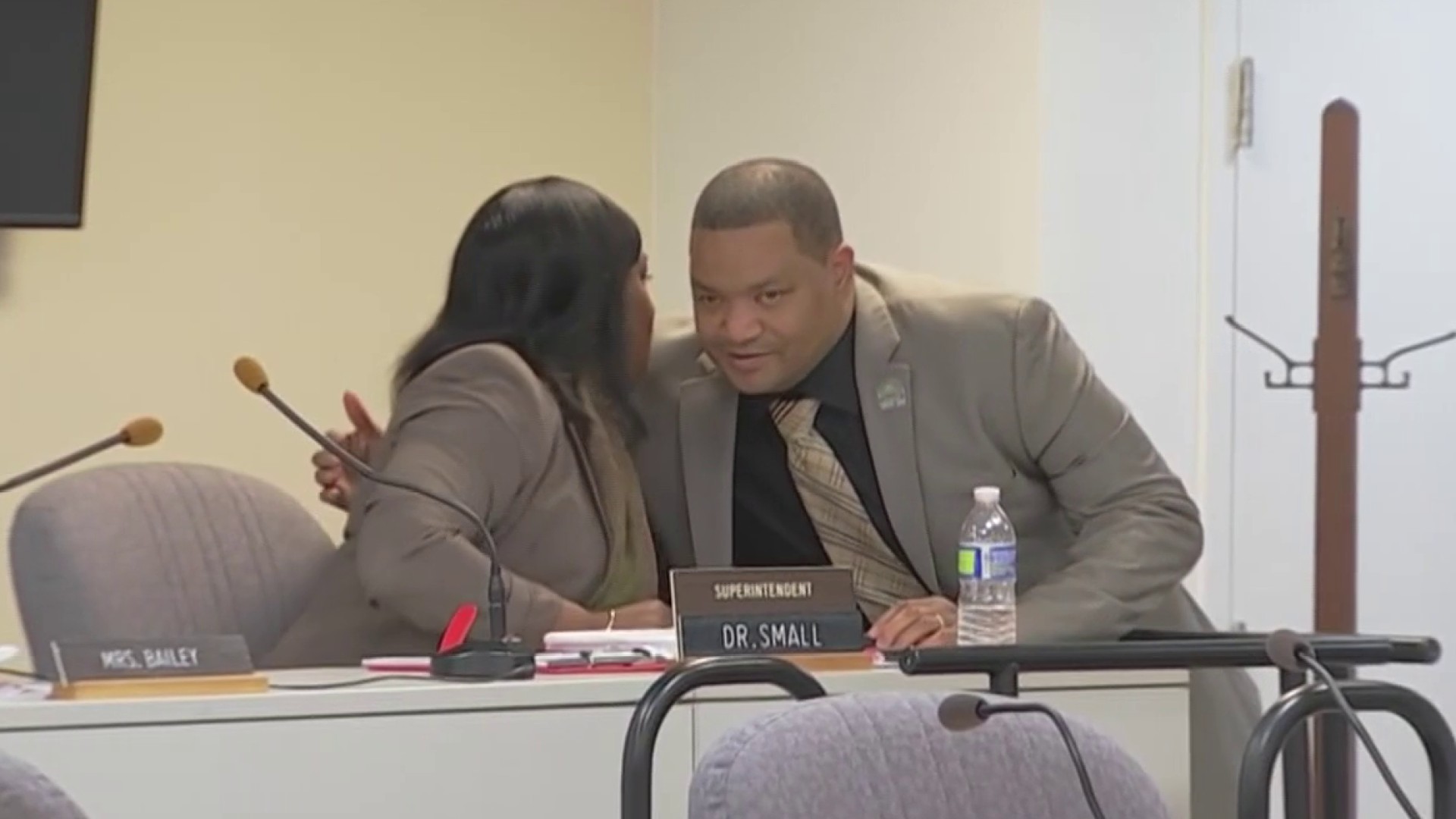With the Philadelphia School District still reeling from a budget crisis, officials are asking teachers' union members to accept wage cuts ranging from 5 to 13 percent, and to begin paying into their health care premiums.
Would that allow the city to compete for teaching talent?
Jerry Jordan, president of the Philadelphia Federation of Teachers, has said several times during this summer of fiscal discontent that his members are paid 19 percent less than teachers in the suburbs.
He said the district's proposed wage cuts would make Philly even less competitive than it is now.
"You have to be able to recruit and retain teachers," Jordan said. "There are ramification for taking a pay cut."
On the other hand, Philadelphia Superintendent William Hite said the district's salaries are currently quite competitive during some points in a teacher's tenure. Hite argues that the district's benefits are also rather attractive: Most Philly teachers do not contribute any portion of their salary toward their health care coverage.
As it turns out, there are separate studies out there backing up both Hite and Jordan.
The Pennsylvania Schools Boards Association discovered that Philadelphia's average 2010-11 salaries for elementary and secondary teachers were 19 percent lower than those in Bucks and Montgomery counties.
Local
Breaking news and the stories that matter to your neighborhood.
A WHYY/NewsWorks.org analysis of the Pennsylvania Department of Education's data also found that the city's average 2012-13 salary of $70,790 for classroom teachers is lower than in most nearby districts. The pay gap arises in part because suburban schools tend to have more highly paid, veteran teachers.
Looking statewide, the average salary in Philly's schools falls behind Pittsburgh's average, which is $73,483.
At the same time, the starting salaries for Philadelphia's teachers are competitive with surrounding districts such as Council Rock and Central Bucks, according to a 2013 report by the advocacy group National Council on Teacher Quality. Wages stay that way for the first 10 years of a teacher's tenure, then start to lag well behind what suburban schools pay experienced teachers.
The report also described the the city's health care benefits as "unusually generous."
Still, Hite said he wishes he were discussing paying Philly's teachers more. But due to the district's unprecedented financial crisis, he said he must ask for concessions instead.
He acknowledged that salary cuts could make Philly schools a less attractive place to work. But so does chronic budget turmoil, he said. Hite hopes a contract more favorable to the district, combined with extra government aid, would put the schools on more stable footing.
"That [financial] instability is also creating problems for us to attract individuals here," he said. "Part of why we're asking individuals for concessions now, why we're asking individuals to contribute to their benefits now, why we're asking the state and city for revenue, is to try to get to a place of fiscal balance."
The Corbett administration is joining Hite in urging the PFT to accept financial givebacks. Charles Zogby, Gov. Corbett's budget secretary, said that the district's long-term financial health depends on it.
He also said that Philadelphia's salaries are currently more competitive in some points during a teacher's career than the PFT makes it seem.
"It is a nuanced picture to be sure," he said. "By contrast, there is no nuance in the PFT's public posturing, perhaps because the facts undercut the narrative they'd like us to believe that all [Philadelphia School District] teachers are underpaid compared to their suburban counterparts."
The PFT agrees that there is a more nuanced way to look at teacher compensation. To Jordan, though, that means taking into account the city's tough working conditions. He said that many Philly teachers reach into their own pockets to pay for classroom supplies.
"I had a teacher say to me recently, 'Don't agree to a pay cut because if you agree to a pay cut, I will not be able to have money to spend on the children in my classroom,'" he said.
Plus, Jordan argues, the district is in a budget crisis because Corbett is shortchanging Philadelphia's schools. Corbett maintains that he is making record investments in education across the state.
David S. Cohen, a public school parent whose two children attend Meredith Elementary School, sides with the PFT on the issue of compensation. He said the district's proposed wage cuts are "horrible," and would end up pushing teachers out of the city.
"I worry that the best teachers are going to go somewhere else," he said. "Then the children are going to be taught by less qualified individuals."
Richard Ingersoll, an education and sociology professor at the University of Pennsylvania, also said wage cuts would make the district less competitive. In fact, he said, the city already has trouble retaining teachers.
"We have this phenomenon called 'cherry picking,'" he said. "If you're a good, young teacher who proves yourself in the city, and you apply for a job in the suburbs, they're not stupid. They pick off the best."
In addition to pay and benefit givebacks, the district is also asking the PFT to agree to several work-rule changes. Those modifications include basing teachers' pay on student performance, instead of automatically providing raises for longevity and degrees earned.
Currently, teachers receive a permanent pay bump when they obtain a master's degree. District officials argue that master's have not been not shown to boost student achievement.
The PFT counters that teachers who are on the job for six years must earn 24 post-baccalaureate credits in order to keep their teaching certificates in Pennsylvania. At that point, teachers argue that it is sensible to complete the 30 credits that are needed for many master's of education degrees.
Last week, Jordan said that he is willing to propose a pay freeze to his members, as well as cost-saving changes to their health care coverage. He is refusing to accept pay cuts, and has not budged publicly on work-rule changes.
District, city and state leaders said Jordan's proposal is not sufficient.
The district and PFT missed a deadline to reach a new agreement over the weekend. The two parties met internally Monday, and plan to continue negotiating soon.
The first day of school, meanwhile, is scheduled for next week.
This story was reported through a news coverage partnership between NBC10.com and NewsWorks.org and the Philadelphia Public Schools Notebook



